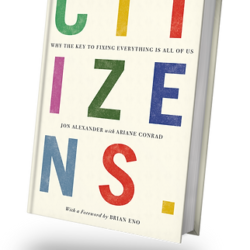For some time now, along with many others, I have been watching if and how 3D printing can revolutionise the mobility sector. It would be too easy to take cheap shots at certain companies in the current market place. However I’ll just say that product innovation, value for money, and customer service could be a lot better for us disabled consumers. If anyone wants a better explanation on this, I’ll happily explain.
Then a couple of weeks ago I was contacted by a charity called Motivation, who manufacture wheelchairs in developing countries. They are embarking on a brand new collaboration with Google.org to explore how 3D printing can revolutionise mobility solutions for disabled people living in developing countries.
The application of 3D printing is already proving to be a force for good in the development sector, and by teaming up with Google, Motivation are able to run a project looking at how 3D printing can be used to tailor mobility solutions for wheelchair users.
This work builds on their vision set out a quarter of a century ago – to create a world in which disabled people are included and can fully participate in all aspects of life.
For the last 25 years Motivation has evolved a unique approach to wheelchair provision combining industrial design with humanitarian programmes. They have gone from making wheelchairs in one local workshop in Bangladesh to helping to set the standard for wheelchair provision globally. Motivation have shown the world that with the right wheelchair, training and support, even the most disadvantaged and vulnerable people can lead full, healthy and productive lives.
With the support of Google’s philanthropic arm, Google.org, this project will allow Motivation to capitalise on advancements made in materials, technologies and manufacturing techniques to explore new ways to provide the right wheelchair in the right way, building on the great strides already made in the sector.
I spoke to their Senior Designer, Ian Harris, who said “we are delighted to be working with Google.org and believe that together we can really help wheelchair service providers in developing countries toward the goal of tailored postural support, reducing the risk of life threatening complications from poorly fitted chairs and dramatically increase mobility and independence.”
The 24 month project will develop and test a model for using 3D printing to create customised postural support devices, which will enable Motivation to move towards a model where appropriate wheelchairs are adapted and fitted to the unique needs of the wheelchair user. Motivation will also engage in outreach and advocacy efforts to encourage broader adoption of 3D printing within its network and elsewhere across the sector if successful.
An integral part of the project is the piloting of a ‘Print Pod’ overseas, which will act as a temporary wheelchair clinic, kitted out with a 3D printer and raw materials. From here trained clinicians and technicians will access a protected online server of modifiable CAD files developed by Motivation design experts. The local team will be able to select a template from the online library, upload the individual component measurement data from the wheelchair user, and from these parameters the programme will generate a customised version that can be printed in the country and fitted to the wheelchair. This means there’ll be no need to wait for a container of products to be shipped overseas, and no need to spend time manually adapting the component. All of this will hopefully reduce waiting times, eliminate storage issues and ultimately be more cost effective.
I think you’ll agree that this is an extremely exciting development. Let’s wish the guys all the luck in the world with this project. It could turn out to be a real game changer for everyone.
World Changing Blogger | Facebook | Twitter | Linked In | Google+
Co Editor Disability Horizons
Co Founder Accomable






